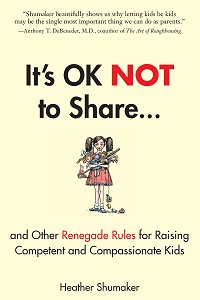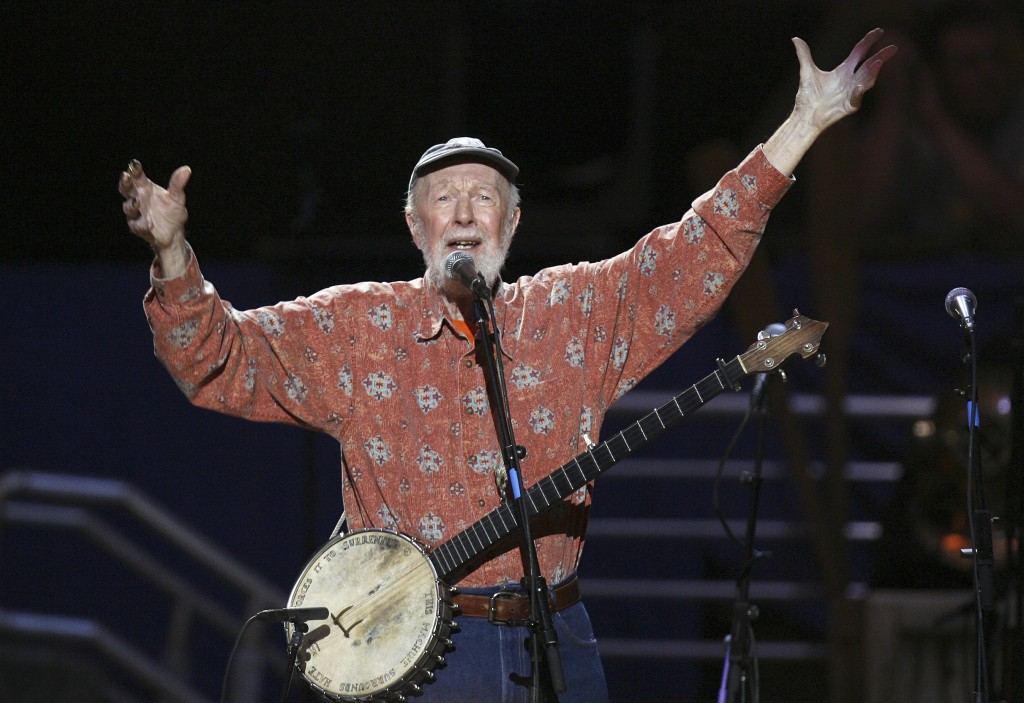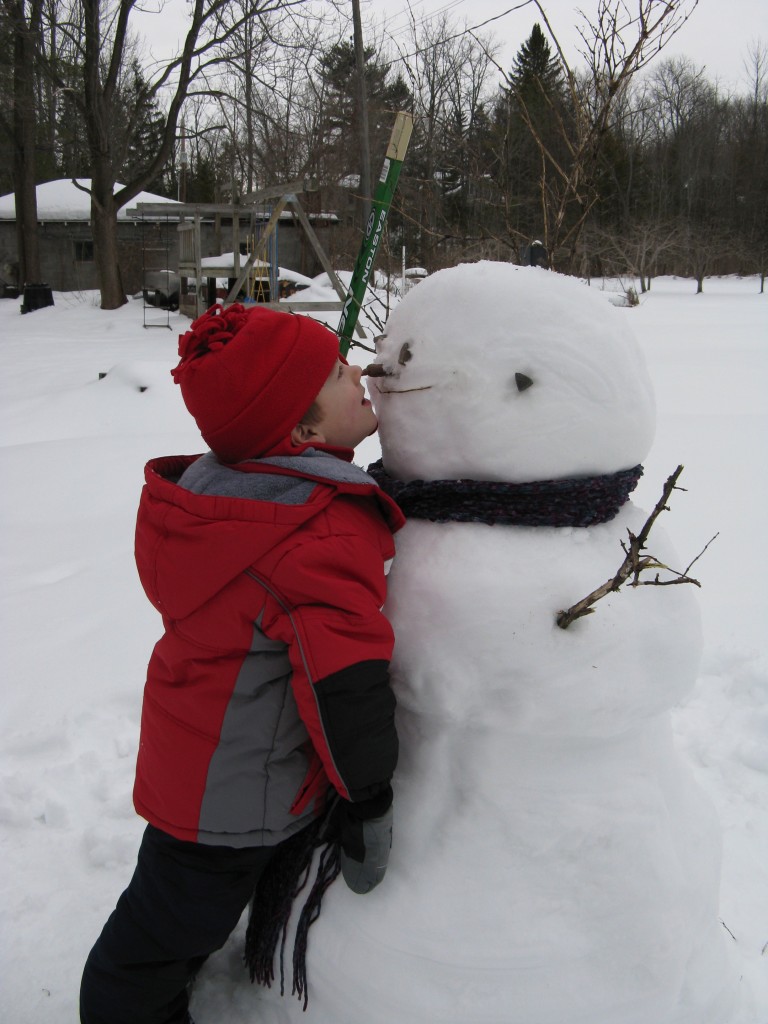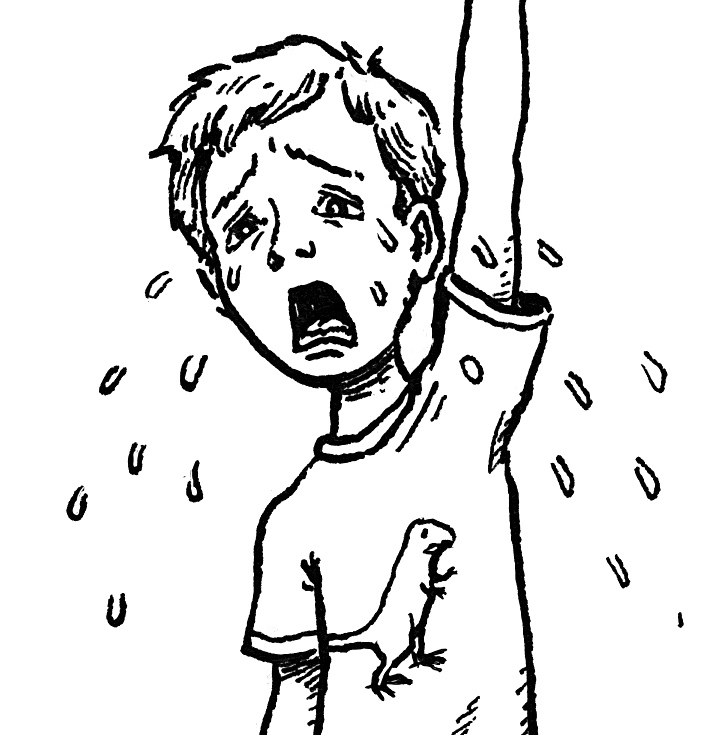A World of Books and Children
Search and enjoy 8 years of posts chock-filled with ideas from It’s OK Not to Share and beyond.
A beloved Renegade died this week. You probably know him. Pete Seeger.
His sing-alongs unified millions. His ideas sometimes shocked folks. Like this typical Pete anecdote - Pete walked by the living room where his grandson and a friend were playing Monopoly. "Might as well be playing 'Rape,'" he said, letting the words hang in the air. Then he left the room.
Whoa.
This one still shocks me. But we need that renegade voice. The one who questions, the one who looks at things from another angle. The one who speaks up, voicing ideas that may be unpopular and certainly contrary to the status quo.
We may not agree with everything a renegade says, but we need to hear them. Because they jolt us. They wake us up. Wake us up enough to consider our own opinions and make deliberate choices.
I crossed paths with Pete Seeger because he founded my beloved Clearwater, the famous Hudson River Sloop that sails the waters of the Hudson. I sailed on the Clearwater for a year, living on the boat as deckhand and Third Mate. It's a boat of environmental education, but also a boat of joy and song. Pete and others built the boat to bring attention to the polluted river by bringing people down to the river again and reminding them they love it. Because, of course, we fight to save what we love.
Pete was the ultimate renegade. He wouldn't stop. Five years ago, when I stood on the National Mall for President Obama's inaugural concert, there was Pete Seeger up on stage at the Lincoln Memorial, still playing his banjo at age 89 in the frigid January air. Last year he was still adding new verses to "This Land is Your Land" keeping up with current causes in support of Farm Aid.
Pete had a file a mile long with the FBI. The House Un-American Activities Committee marched him in for interrogation and sentenced him to jail because he wouldn't stop. If they had woken up, they would have realized that the only un-American activities going on were the actions of the House Committee itself. Speaking out is a vital part of healthy democracy.
In President Clinton's words, Pete was “an inconvenient artist who dared to sing things as he saw them.”
We all need to do that. Sing out what we see. Take action to make positive changes.
Pete's weapon was always his banjo. He woke up people's hearts with his songs. Universal songs like "If I Had a Hammer" and "Where Have All the Flowers Gone?" and quintessential American songs that he popularized like "This Land is Your Land" and "We Shall Overcome." Words painted on his banjo said, "This machine surrounds hate and forces it to surrender."
The lyrics say it best:
Nobody living can ever stop me
As I go walking that freedom highway
Farewell, Pete. Your music will carry on. Most people may think of you singing around a campfire, but I'll always picture you with a banjo in your hand on the deck of Clearwater, or up on your Beacon hilltop home filtering maple sap into buckets through your handkerchiefs.
Good work. Good rest.
Have you sung with your children today? What renegade do you admire?
It's another Snow Day for our local schools today. A day of universal rejoicing around here. Of course, unexpected Snow Days add inconvenience for adults. For me, that means scurrying to reschedule interviews and arrange last minute sitters, but most of all I feel relief. My kids now have the Gift of Time.
Time to pursue their own ideas. Time to follow passions and whatever's most fascinating to them right now. Time to be themselves. Time to Play. And for me, a Snow Day is also an emotional day off. It means I can give the kids what they most need without bucking the system.
I'm a proponent of short school days. I believe some school is good, just not too much. Kids have so much learning to do that is truly self-directed. What they most desperately need from us adults is TIME. Time without schedules, time constraints, demands and commands. Time guided only by daily cycles of sleeping, waking, eating and family chores.
I know short school days work. My high school had only 4 regular school days. Wednesdays were internships and time off. My elementary school had 3 recesses. Morning recess, afternoon recess plus an hour at lunch. With a six hour school day, that meant class time was only four hours.
Do you know the work of Peter Gray? He beautifully explains the benefits of children's play. How telling, as he says, that people cry cruelty when we do experiments on animals to deprive them of play, yet for the last 50 years we've been doing a massive experiment of systematically depriving our children of play. It makes me shudder.
Standing up for the right to play takes courage. It means skipping team sports. It means adjusting adult work schedules and income. It means purposefully taking children out of school some days and saying no to homework. It means partnering with teachers and having those difficult conversations. It means letting your child go to the park alone.
As Mark Twain said: "Never let formal education get in the way of your learning."
For us, it also means celebrating Snow Days.
Read more about the social, emotional and moral value of play in Peter Gray's work. Find more of play's benefits and ways to preserve play in "Don't Steal Play" the opening chapter of It's OK Not to Share or read reviews.
Our culture loves choice. Ever feel overwhelmed by it all? Go to the grocery store and there are 15 types of bread. Eighty types of snack food. In my grocery store, there must be at least 30 types of crackers alone. Some choice is helpful. Too much is overwhelming, especially if we're not in a mood equipped to handle it.
Choice is hard on kids. The world is pretty overwhelming already - fascinating, yes, but it takes young kids enormous energy just to process it all.
We often expect kids to make choices. Mostly, logical choices about their own behavior. "That's a good choice," we tell them. "That's a bad choice." Or "Did you make a good choice?" "Hitting your brother wasn't a good choice."
The truth is how they behave isn't always a choice for children. At times - especially when they're well rested, fed, feeling safe and cheerful - young kids can make sensible choices and control their impulsive behavior. But often they can't. It's too hard.
We need to understand that and not be disappointed. Not be angry. We need to put a stop to the bad behavior, but not assume it's a choice. Sometimes kids want to stop but need help. Often they're scared of their raging feelings or actions. Believe it or not, the ability to "stop" is hard. Kids may not know how.
By calling their behavior a "choice" we expect them to be logical beings with fully developed impulse control and a steady hand on their emotions. Kids are still developing impulse control, and it's often impossible for them to "choose" to stop when they are raging mad, scared or sad.
Acknowledge it's not always a choice Instead of saying "That wasn't a good choice." Try: "It's too hard right now. I'm going to move your body away."
Keep choices to a minimum Being asked too many questions can be stressful for kids. It also gives young kids an inflated notion of who's the boss in the family. Try: "We're going to the park." instead of "Do you want to go to the park or the school playground today?" The kids will enjoy wherever they are, and chances are you already know which will fit the family best.
Give limited choices in daily life If getting dressed is a stumbling block, you can provide a limited choice. "You have to get dressed now. Are you going to wear the blue shirt or the red shirt?" This allows the child some power. The less often you use this tool, the more effective it can be.
Give free choice in play This is where children really get to practice choosing ideas and actions. Limit behavior if it crosses the line, but give kids plenty of time to make choices and risks in play.
 Making good and bad choices becomes more relevant as kids get older. Most young kids' "choices" are really learning how to set limits and cope with intense feelings. Want to know more? Read chapters on setting limits and wild emotions in the book It's OK Not to Share.
Making good and bad choices becomes more relevant as kids get older. Most young kids' "choices" are really learning how to set limits and cope with intense feelings. Want to know more? Read chapters on setting limits and wild emotions in the book It's OK Not to Share.
Do you ever feel overwhelmed by so much choice? When does choice work well in your family?



